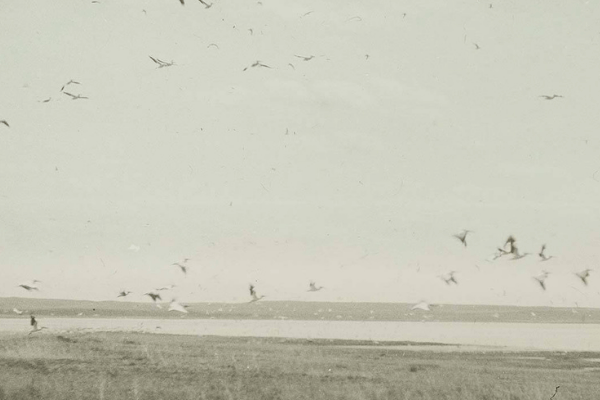Home > Hidden Collections > 5 for 5: Conversations on Five Years of Digitizing Hidden Collections

2020 marked the fifth year of CLIR’s Digitizing Hidden Collections program. With 84 projects completed or in progress, this free virtual event brought together speakers from 20+ funded projects for a day of conversations.
The event followed the virtual DLF Forum on November 9th and 10th and Digital Preservation on November 12th.
Our thanks to session participants and organizers for generously sharing their experiences and insights, and for their contributions to the Digitizing Hidden Collections program.
Speakers: Becca Quon, Nathan Hall, Jasmine Shah, Tianyu Ge, Alex Kinnaman, Loni Shibuyama, Erin Anderson, Elizabeth Knott, Christine Thompson, Alyssa Robinson, Lisa Crane
Represented Projects:
Speakers: Karen Cariani, Vincent Kelley, Michael Kamins, Debra Fraser, Chris Alexander, Rachel Curtis, Casey Davis-Kaufman
Participants from four Digitizing Hidden Collections projects discuss their collaborations and partnerships. The projects are in different stages of completion – from completely done to just starting. All are collaborations with the American Archive of Public Broadcasting. The partnerships vary from statewide consortiums in Kansas and New Mexico to a radio station in NYC to a national news program. The discussion will cover the benefits and complications of partnerships.
Hosted by Karen Cariani, Executive Director, WGBH Media Library and Archives
Speakers: Martin Tsang, Sheila McAlister, Karin Carlson-Snyder, Ivy Gocker
A discussion about designing strong digitization projects, led by longtime members of CLIR’s standing review panel for the Hidden Collections program.
Hosted by Dr. Martin Tsang, Cuban Heritage Collection Librarian | Curator of Latin American Collections, University of Miami Libraries and Sheila McAlister, Director, Digital Library of Georgia, University of Georgia Libraries
Speakers: Synatra Smith, Carol Smith, Laurie Taylor, Holly Smith, Christine McCleave
“Networking across,” as advised by actress-writer-producer Issa Rae, involves tapping into your existing network to complete projects with laterally positioned, like-minded individuals before approaching larger institutions. The intention of this discussion is for speakers to share their experiences with increasing organizational capacity through partnerships with other similarly positioned organizations, as well as fostering equitable community engagement. Additionally, speakers will discuss how to manage the expectations of funders and other stakeholders alongside project goals and organizational capacity, and how to set boundaries with larger organizational partners.
Hosted by Dr. Synatra Smith, CLIR/DLF Postdoctoral Fellow in Data Curation for African American Studies at the Philadelphia Museum of Art Library and Archives and the Temple University Library Loretta C. Duckworth Scholars Studio
Speakers: Casey Davis Kaufman, Katie Basile, Kevin Wood, Jason Clark, Brenda Flora, Fletcher Durant
In October 2018, the United Nations Intergovernmental Panel on Climate Change (IPCC) issued a Special Report warning that the world has approximately 12 years left to significantly reduce global greenhouse gas emissions if we are to have more than a 50% chance of keeping the global temperature increase to below 1.5°C (about 2.7°F), the amount of heating that scientists agree is the upper limit for avoiding the most dangerous effects of climate change. Communities from the Gulf Coast to the West Coast and Alaskan Arctic regions are already experiencing devastating impacts of extreme weather events and heat exacerbated by climate change. Archivists, responsible for the long term preservation of the historic and cultural record, have an ethical responsibility to prepare for climate disruption by developing mitigation and adaptation plans to protect the collections we steward. Meanwhile, archivists are actively preserving and making accessible historical and contemporary collections that document our changing world and the impacts of climate change on communities, human lives, wildlife, public policy, the economy and the natural environment. This session brings together a scientist studying historical climatology alongside archivists, media producers and researchers who have experienced the impacts of (un)natural disasters in the course of their work and who are working to expose historical data for climate modelling and preserve collections that can be used to support research and public education to generate greater awareness and understanding of the climate crisis.
Discussion will center on protecting collections from disasters; sustainable preservation; preservation of indigenous knowledge of the environment and collections documenting climate change; the ethical responsibilities of archivists in the era of the climate crisis; and the deep intersectionality of this work with climate, environmental and social justice movements.
Hosted by Casey Davis Kaufman, Associate Director, GBH Archives and Project Manager, American Archive of Public Broadcasting
Get updates about the 2022 Digitizing Hidden Collections Symposium by signing up for the CLIR grants mailing list and following us on Twitter at @clirgrants.

Council on Library and Information Resources
1800 Diagonal Road, Suite 600
Alexandria, VA 22314
contact@clir.org
CLIR is an independent, nonprofit organization that forges strategies to enhance research, teaching, and learning environments in collaboration with libraries, cultural institutions, and communities of higher learning.
Unless otherwise indicated, content on this site is available for re-use under CC BY-SA 4.0 License